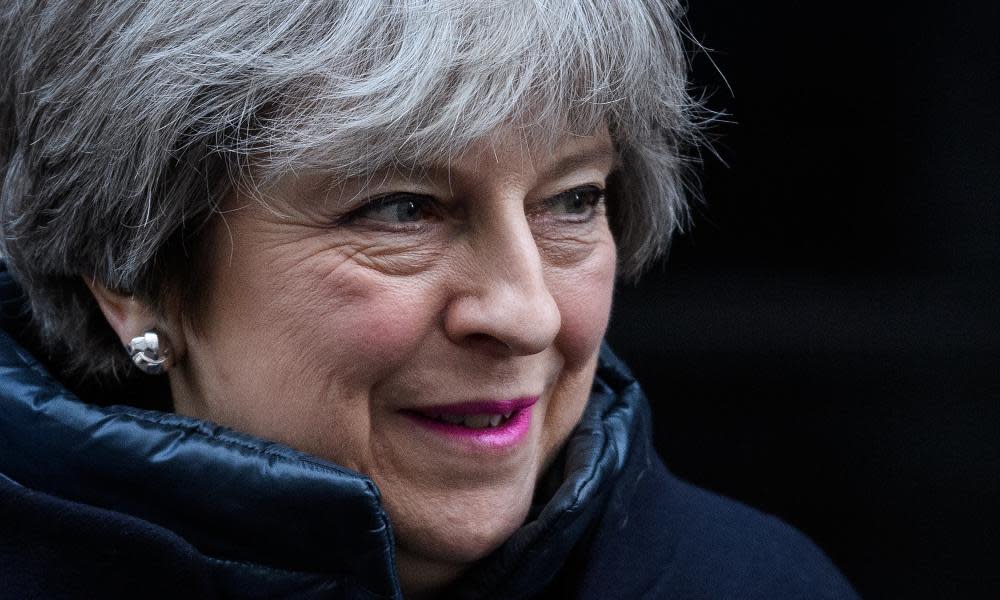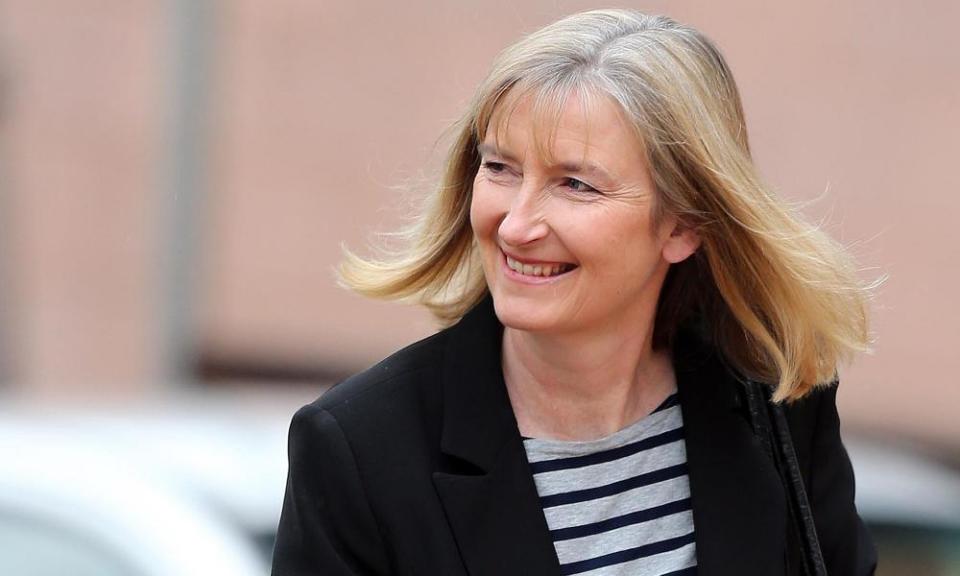No big ideas will be coming from Theresa May – and her Tory enemies know it

Theresa May’s unique quality as a politician is her capacity to endure. It is an unusual attribute, this soldiering-on thing. Modern politicians are like Icarus, bench-tested against the zillion-degree temperature of public opinion almost before they have found their way to their office. But May does not fit the mould of the modern politician. She has been an MP for 20 years. For nearly 19 of them, she kept her head down. Occasionally, she lifted off. Then she bumped discreetly back to earth.
But there is no hiding place for prime ministers. Cowering under the desk is not in the job description. On the other hand, nor has anyone before tried May’s trick of simply staying there. May enjoyed an extraordinary honeymoon as PM, from her coronation in July 2016 until the evening of 8 June 2017.
Then, even in the face of catastrophe, grim-faced and haggard, still she survived the wretched campaign and the squandered majority. It was not only because she flung her closest aides, Nick Timothy and Fiona Hill, on to the pyre intended for her. At the final minute, her critics flinched; she did not.
The past few days suggest some of the critics are regrouping. There was open insubordination on Tuesday from the foreign secretary, Boris Johnson, whose manoeuvring over the NHS earned him a prime ministerial rebuke. And then there’s the ex-minister Nick Boles; ex-party boss Grant Shapps; the well-regarded health committee chair, Sarah Wollaston; and the grandee di tutti grandees, Nicholas Soames. They have formed up into a daunting line of attack – one that may be the more effective for its oblique approach. In various guises, they are calling for a big idea. They want imagination and courage. They want a vision of the future more uplifting than plastic-free aisles in supermarkets by 2045.
May's critics are calling for a big idea. They want imagination and courage. They want a vision of the future
They are right: not since 1945, when Labour crushed the Tories in revenge for the squalor of the 1930s, has the need for a different way of doing things been more obvious. It is not just that Brexit has smashed the shape of normal life: it has created what its advocates call an unfrozen moment. In its wake, all new thinking appears legitimate, because all the old truths seem to have been discredited.
And yet no one has ever pulled off the trick of reinvention in office. Every leader wants to do it, none has succeeded. The nearest thing is a change of leader: the dethroning of Margaret Thatcher in 1990 succeeded in persuading voters in sufficient numbers that something new was happening for John Major to win the 1992 election. May knows that. She has tried to pull it off too. That’s why she felt able to call for change on the steps of Downing Street on 13 July 2016, and again – although a lot less successfully – when she launched the Tory manifesto in 2017.
It is not that May has no new, or at least unfamiliar, ideas. She has done big, brave things. She told her own party they were nasty. She has taken on the traditional Tory heroes, the bobbies on the beat, and told them to sort out their trade union, the Police Federation. Then, when she became PM, she trashed the Tory modernisers and she spat on the Cameron project.
But big ideas are not what she is for. Vision, and more importantly the process of selling vision, are not the May brand. She – the least Churchillian of Tory leaders – does what Churchill did: she buggers on.

This is hardly a secret. The people calling for her to be bold and creative know it. They are not rooting for their leader to stretch herself and do what they know she is capable of. Their aim is much lower. They are drawing attention to what is recognised as the most pressing question in politics, and to the fact that she can’t do it. It feels very much as if they are prepping the wicket to bowl her out.
Nothing in politics in 2018 is far from Brexit. From the start, May’s appeal was that she could bridge the gap between leave and remain. But now leavers see that bridging the gap means a compromise on Brexit that Boris Johnson claimed last week would be even worse than staying in – a point of view he reinforced when he told the Guardian that the leave campaign had not misled voters with the £350m side-of-the-bus pledge, but in fact underestimated the potential rewards for the NHS of leaving. He hopes he can revive the idea of a binary choice between the NHS and remaining in the European Union.
This is the year of decision, and it is still not clear what that decision will be. It is beginning to look as if both sides of the Tory party have decided that a fudge that holds the party together will not do. The leavers still yearn for the delusion of a clean break. The remainers are beginning to fear that May will not be able to sell a Tory version of a soft Brexit that is more appealing than Labour’s. They judge that in the next electoral contest Labour’s promise of new thinking, or at least of novelty, will be more appealing than May’s buggering on. They don’t expect May to reinvent herself. Perhaps they don’t even expect her to try.

 Yahoo News
Yahoo News 
